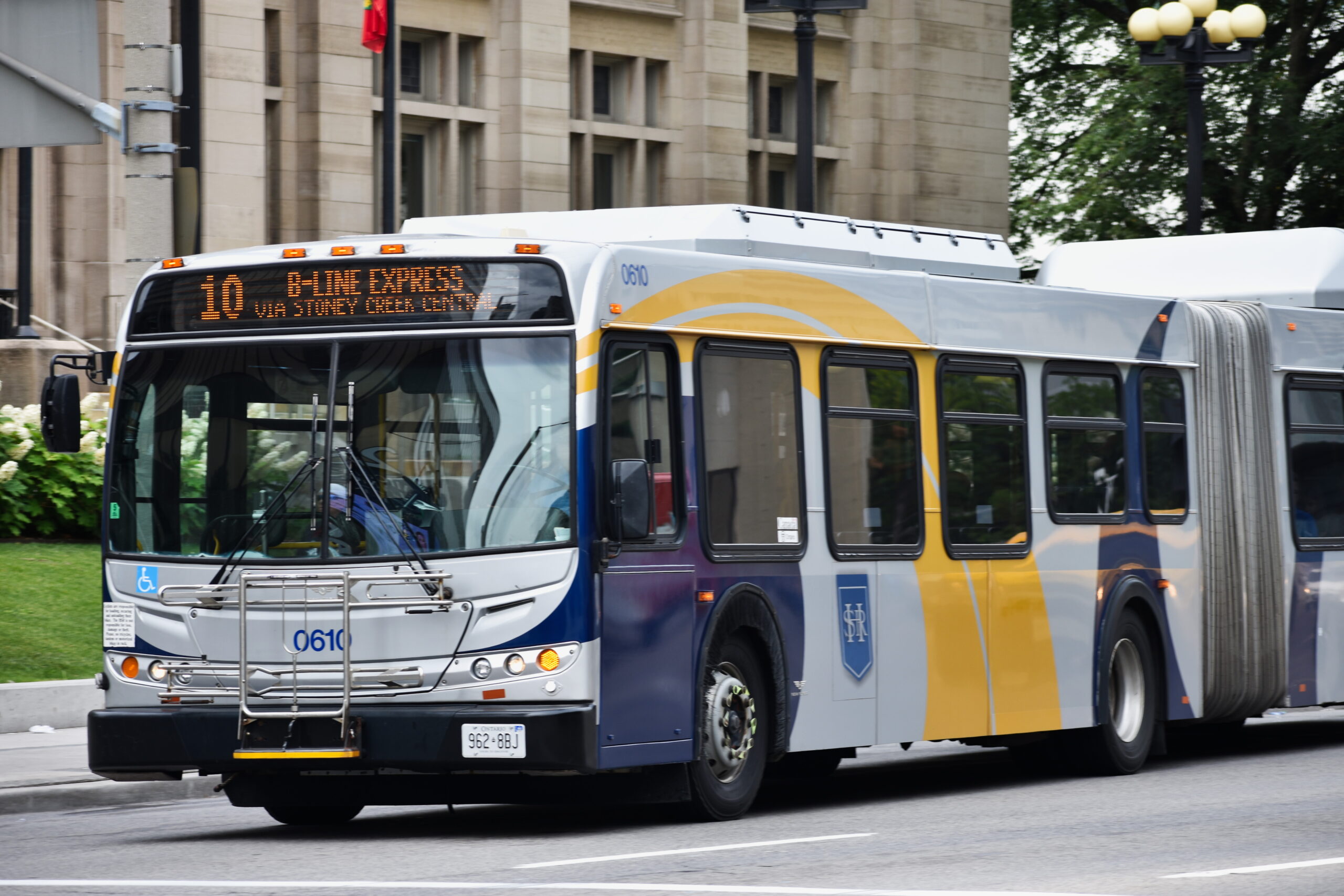Hamilton’s embattled transit division, the Hamilton Street Railway, is forecasting a $2.5-million unfavourable budget variance in 2017.
The HSR is experiencing declines in paid ridership revenue, and an increase in staff on short or long term illness and disability.
HSR ridership appears to have flat-lined. Council forecast ridership growth this year, even with their decision to cancel the 10-year transit strategy that would’ve improved service.
Due to lower than expected ridership, the HSR is forecasting a $1.1-million fare revenue shortfall for 2017.
The increase in sick leaves and absences is resulting in the HSR is forecasting to be $1.8-million over its overtime budget.
The HSR is expecting favourable variances in other areas, for a total budget forecast shortfall of $2.5-million in 2017.
When drivers are absent, buses must be kept on the road with other drivers filling in by working extra shifts and on their days off. Even with overtime, many HSR bus runs are being cancelled due to a lack of drivers.
Ward 12 Councillor Lloyd Ferguson questioned the HSR’s budget during the quarterly budget variance presentation during Wednesday’s Audit, Finance, and Administration Committee.
He called for staff to provide a report on HSR overtime, ridership, and revenue for the August AFA meeting.
Ward 5 Councillor Chad Collins wants a full review of the HSR budget, opening treating it the same as DARTS which saw Council cut its budget over the past few years.
“We’re put about $15-million on the levy since 2012, that’s the last count finance gave me … the trend is … that we continue to pour money into the system and we are not seeing a return on that investment”, Collins told his fellow committee members.
The HSR’s collective agreement requires that overtime be offered to drivers, and that bus runs can only be cancelled if no drivers volunteer for the overtime.
Collins wants to change this, “There’s certainly some changes we could seek to make through the bargaining process.”
Collins says the Council has shown an unprecedented commitment to public transit in the past couple of years.
“When you look at the historical investments we’ve made in transit, they far exceed most other departments in the City”
On declining revenues, and poor ridership growth:
[I’m trying] to understand why this trend continues to go in the wrong direction and I have a sinking suspicion, there will be a group in the community – a very small one – but a vocal minority saying again were not doing enough for transit.
Even though, as I just mentioned, they’re getting a lot more than any other department in the City, including the year end variances.
I think the messaging has to be that we made those investments and we’re not seeing the yield on those investments and return as we would’ve like and anticipated, and something needs to change.
It’s not sustainable.
We’ve been critical of DARTS, they’ve been in front of us and we’ve grilled them on these million dollar variances at the end of the year. There ridership numbers are up, we’re paying for it, and HSR there’s a different message, we put the money in and its almost like we hope things improve next year, and they haven’t”
Collins says he expects the HSR budget will be debated during a “transit day” early in the 2018 budget process this fall.
Ward 7 Councillor Donna Skelly moved for HSR ridership numbers to be provided to Council prior to the August 9 LRT Sub-Committee meeting:
“Is this [report] going to be available for the LRT subcommittee meeting, we need to know those numbers because it will certainly have a impact as we move forward with the LRT, our ridership on the HSR, I’d like to have real numbers. At the bare minimum, our trends and where our ridership is heading.”
After the meeting, Skelly told The Public Record that she’s looking to be a comprehensive review of the HSR.
“I had a constituent call me the other day, she was stuck at the water park because HSR service ends before the park closes”.
The HSR cuts service frequency to Van Wagners Beach on the 56-Centennial bus each summer in response to increased ridership.
The 56-Centennial bus operates from 10am to 6pm, each 60 to 75 minutes. The last bus from Wildwater Works is at 5:52pm.
The HSR was the only transit agency in the Greater Toronto-Hamilton Area to operate with limited service on Canada Day, with waits on some routes of over an hour for buses as the HSR operated its Sunday skeleton service on Canada’s 150 birthday.
HSR Transit Director Debbie Dalle Vedove tells The Public Record the HSR now has 25 buses with automated passenger counters, with some of the 25 units on the 60 foot articulated buses which service the B-Line, 5A, 25/26/27, and 35 on weekdays. During weekends, the 1-King route is fully serviced with articulated buses.
The counters will be used as part of the statistics Council will receive.
Editors Note: This story was filed using the recording of the meeting from the City of Hamilton website for quotes from the meeting.
There were multiple simultaneous meetings at City Hall this morning, The Public Record attended the Hamilton Utilities Corporation Committee meeting as it would not otherwise be recorded. No media was present for the AFA meeting.

